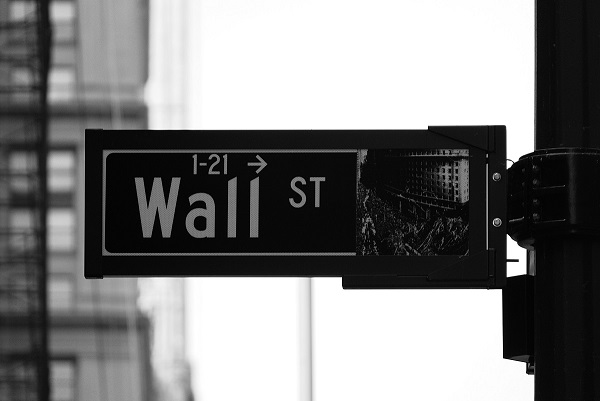
Apple loses $57 billion in market value in a single day amid China concerns and weak iPhone projections
After starting out 2019 with a roller coaster day of trading, global markets were forced to endure an even more turbulent Thursday as Apple warned its investors of slowing iPhone sales and the repercussions of U.S. trade wars with China.
A day after trading was halted to announce a $9 billion reduction in projected revenue, Apple stock opened the day on Thursday at just $144, $14 lower than its plummeting price of $158 at the Wednesday close.
As a result of the stock’s continued slide, it is now at its lowest price since April 2017. In only a few short months, the iPhone maker has lost $452 billion (with a “b”) in market cap, including many more billions on Thursday as Apple stock sank further into the red.
To put things in perspective, the amount Apple has lost since reaching $233.47 a share and a new 52-week high on October 3 has been greater than the individual market value of Facebook, J.P Morgan, and nearly every other member of the S&P 500.
In fact, only Amazon, Alphabet, Microsoft, and Berkshire Hathaway have larger market caps than Apple’s $452 billion loss since reaching its recent high. More staggering is the fact that $57 billion was lost in under 24 hours.
Apple’s troublesome letter to investors on Wednesday sparked the sell ticket onslaught. In it, CEO Tim Cook blamed Apple’s lower projections on several factors, including trade wars with China, the company’s iPhone battery replacement program, and ultimately, fewer than expected iPhone sales.
“While we anticipated some challenges in key emerging markets, we did not foresee the magnitude of the economic deceleration, particularly in Greater China,” Cook said in a CNBC interview after Wednesday’s close.
“The trade tensions between the United States and China put additional pressure on their economy,” he continued.
Cook’s words, in addition to a general slowdown in the global economy and continuing fears regarding tightening monetary policy from central banks, helped push both Apple stock and the markets in general downward during the second trading day of 2019.
In the process, Apple lost its position as the largest U.S. company in terms of market value. That honor now belongs once again to Microsoft, which was worth $816.6 billion at the close of Thursday, beating out Apple at $815.5 billion.
Will the bloodbath continue or is rock bottom near?
After months of supply chain cuts and a huge change to the iPhone-maker’s sales reporting structure, Wednesday’s admission was exactly what shareholders were waiting for.
Apple shares dropped 10 percent on Thursday, marking the biggest single-day percentage decline since the start of 2013. Meanwhile, the stock’s price decline marked the largest ever in one day since the company went public in December 1980.
The Apple announcement during the Wednesday trading day triggered a chain reaction of price target cuts by analysts from New York to London, with many analysts cutting their targets by $100 or more.
According to one analyst, this was Apple’s “biggest miss in years.” According to another, Cook’s announcement “raises more questions than answers.”
Nearly every other Wall Street analyst echoed these sentiments as everyone prepared for Wall Street’s swift response.
Patrick Moorhead, principal analyst at Moor Insights & Strategy, told Fast Company Apple’s stock price will continue to struggle until the company can regain double-digit growth.
As far as numbers go, Goldman Sachs analyst Rod Hall cut his price target from $240 to $140, marking a drop of 42 percent. He still gives the stock a neutral rating as he has since February 2018.
Meanwhile, Brian White, an analyst at Monnes Crespi Hardt, also chopped his target by $100. However, he kept his buy rating as he feels Apple’s price is “depressed,” especially since it has a net cash position of over $25 a share.
Timothy O’Shea of Jefferies, doesn’t agree. He has downgraded the iPhone-maker to hold and slashed his price target from $225 to $160. He also calls Wednesday’s announcement Apple’s “biggest miss in years.”
“We still think Apple can build a massive services business over time. But Apple hasn’t missed its guide in years, so the extent of this miss suggests it is navigating uncharted waters,” wrote O’Shea in a letter to his clients. “We move to the sidelines and wait for clarity as uncertainty grows around the hardware business.”
Despite maintaining a higher price target than many other analysts, according to Wedbush analyst Daniel Ives, the negative outlook regarding the tech giant is “massive” and Wednesday marked “Apple’s darkest day in the iPhone era.”
In a research note, Ives wrote: “Last night Apple delivered a bombshell negative preannouncement that will be a defining moment for Cook & Co. for years to come. Although the company had some soft quarters over the past 20 years that missed Street expectations, in the modern iPhone era last night was clearly Apple’s darkest day in our opinion and represents a challenging growth period ahead for the company (and its investors).”
In spite of Apple’s recent “blackeye,” Ives has kept a buy rating for the stumbling giant. According to Ives, Apple is an “installed base story of 750 million active iPhones worldwide.”
Nonetheless, Thursday’s downward move extended the markets’ brutal start to the new year. Unfortunately, this is a continuation of 2018, in which the S&P 500 fell 6.2 percent. It was the worst year for the S&P since the financial crisis and the index’s worst December since the market unraveled during the Great Depression nearly a century ago.
We’ll keep a watchful eye to see how low the price of Apple and other tech stocks will continue to go. Let’s hope it isn’t a sign of what lies ahead in 2019.


